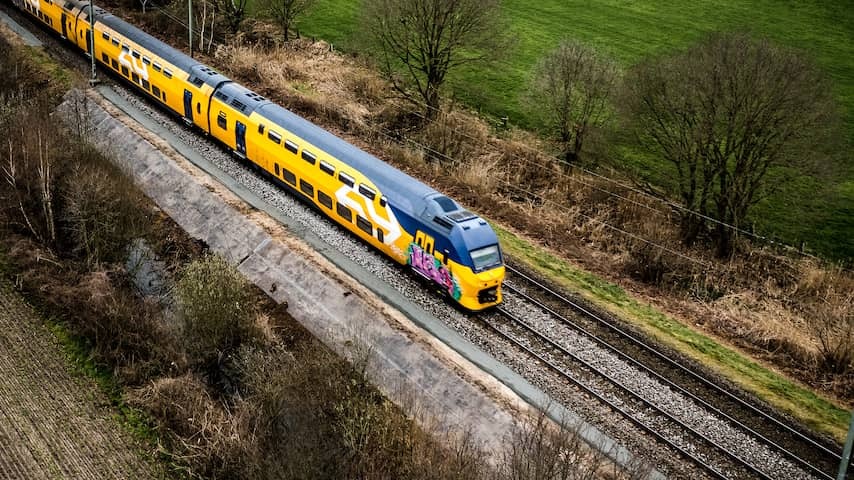
Vakbond VVMC wil weer in gesprek met de NS om tot een cao-akkoord te komen. Dat meldt de grootste spoorvakbond vrijdag na intern overleg. VVMC heeft alle acties opgeschort, treinstakingen blijven voorlopig dus uit.
Leden van de VVMC, CNV en FNV hadden gestemd over het eindbod van de NS, waarin onder meer een loonstijging van 4 procent wordt voorgesteld. Daaruit resulteerde dat de VVMC en de FNV tegen het voorstel van de NS waren. VVMC eist een salarisverhoging van 8 procent.
Donderdag heeft de vakbond de afwijzing toegelicht in een gesprek met de NS. “Wat ons betreft vinden de komende weken verdere gesprekken plaats”, meldt de vakbond, die stelt dat de NS dit heeft toegezegd.
De gesprekken moeten volgens VVMC duidelijk maken of de NS de vakbond over een maand genoeg tegemoetkomt om onderhandelingen weer op te starten. De NS heeft met het eindbod eigenlijk laten weten niet meer verder te willen onderhandelen.
NS-medewerkers hebben sinds het mislukken van het cao-overleg al vier keer gestaakt. Tijdens de eerste staking begin juni konden door het hele land geen NS-treinen rijden. Enkele dagen later moest NS de dienstregeling opnieuw landelijk schrappen, door een staking in de Randstad. De overige stakingen hadden alleen regionaal impact.
The VVMC trade union wants to talk to NS again to reach a collective labor agreement. This was reported by the largest railway union on Friday after internal consultations. VVMC has suspended all actions, so train strikes will be suspended for the time being.
Members of the VVMC, CNV and FNV had voted on the final offer from NS, which included a wage increase of 4 percent. This resulted in the VVMC and the FNV being against the NS proposal. VVMC demands a salary increase of 8 percent.
On Thursday, the trade union explained the rejection in a conversation with NS. “As far as we are concerned, further discussions will take place in the coming weeks,” said the trade union, which states that NS has promised this.
According to VVMC, the discussions must make it clear whether NS will sufficiently accommodate the trade union in a month to restart negotiations. With the final offer, NS has actually indicated that it no longer wants to negotiate further.
NS employees have already gone on strike four times since the collective labor agreement consultation failed. During the first strike in early June, no NS trains could run throughout the country. A few days later, NS had to cancel the timetable nationally again due to a strike in the Randstad. The other strikes only had a regional impact.